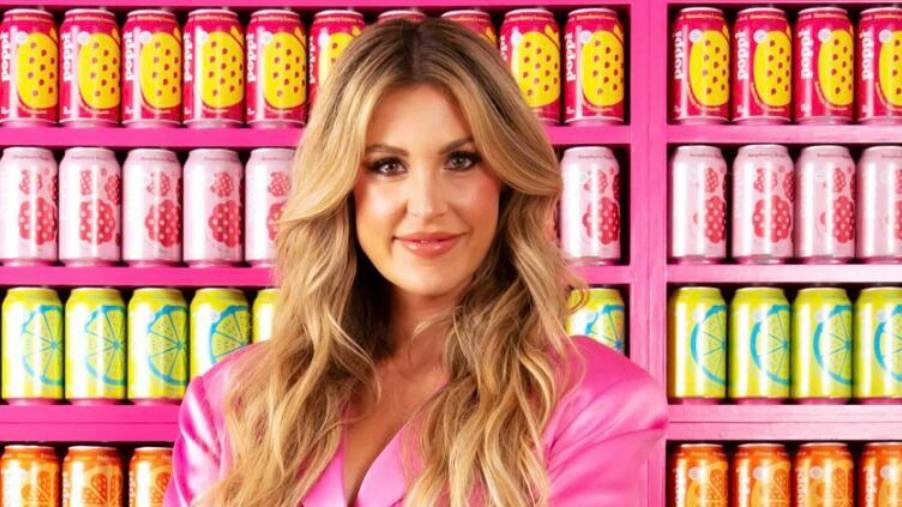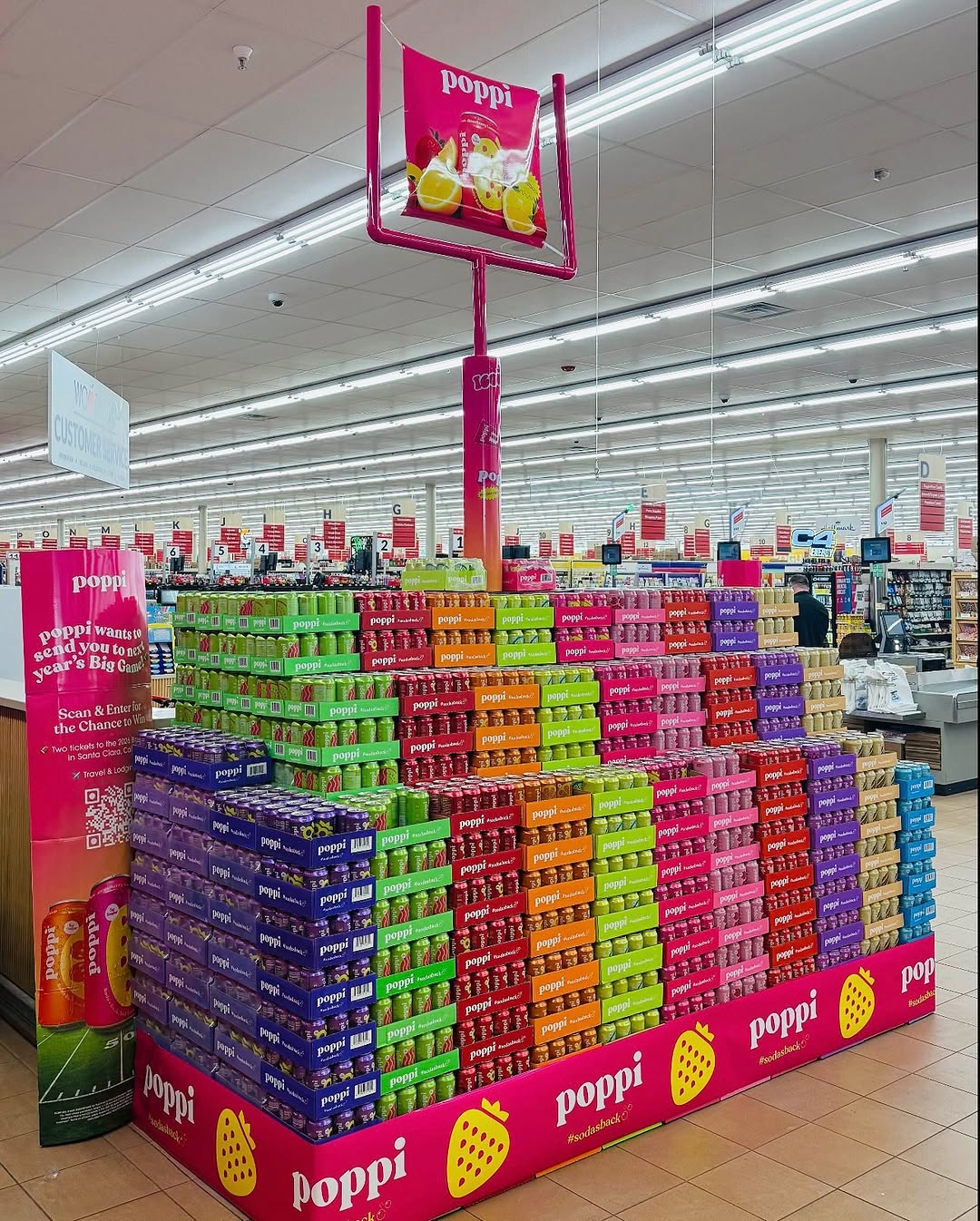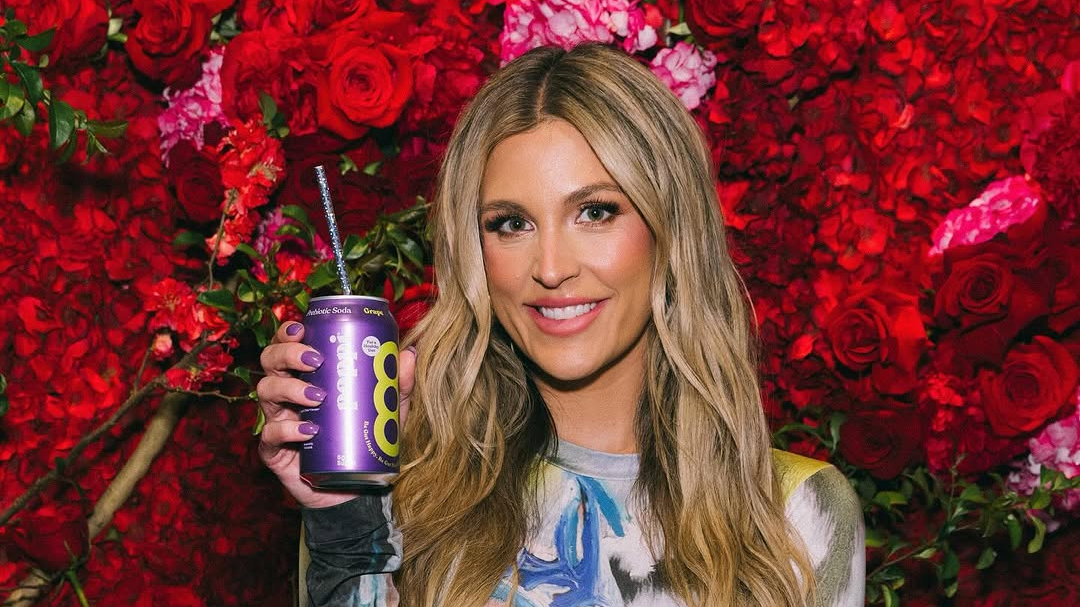Is Poppi Soda Really as Healthy as It Claims?
Poppi, the trendy prebiotic soda drink promises a healthier alternative to traditional sodas with its low sugar content and gut-friendly ingredients. Marketed as a delicious way to improve digestion and boost overall health, Poppi has become a favorite among health-conscious consumers and celebrities alike. The CEO created the drink whilst facing some of her own personal health issues.
But is Poppi really as healthy as it claims?

What Are the Health Benefits of Poppi?
Poppi’s main selling point is its prebiotic benefits derived from apple cider vinegar (ACV). Each can contains about a tablespoon of apple cider vinegar, which is known to promote gut health by supporting the growth of good bacteria. Here’s a breakdown of the stated health benefits of Poppi which can be found on their website:
-
Supports Gut Health: The prebiotics in apple cider vinegar feed beneficial gut bacteria, improving digestion and overall gut balance.
-
Reduces Bloating: Many Poppi drinkers report feeling less bloated after regular consumption due to the gut-balancing properties of ACV.
- Prebiotic: Poppi contains Agave inulin which is a prebiotic extracted from the agave tequilana plant, and cassava root fiber, a prebiotic obtained from the root of the cassava plant. This also helps Poppi have that sweetness without added sugars.
-
Improves Skin Health: A balanced gut can lead to clearer skin by reducing inflammation and promoting a healthier microbiome.
-
Low in Sugar and Calories: Poppi contains only 5 grams of sugar and 25 calories per can, making it a healthier option compared to traditional sugary sodas.
While apple cider vinegar has been regarded for it's health benefits for several years now, its effects are not consistent person to person. The soda is marketed as having 'none of the bad stuff' but does this mean it's really a healthy drink?
From my highly unscientific, office wide poll, our Editor had this to say about his experience with ACV...
I've tried apple cider vinegar for over two years, both added to water and to food, like salads and pastas. I think it adds a great taste to food and makes a refreshing drink. In terms of health benefits, it's difficult to say that I've noticed any difference, but I like the taste. Although I don’t think ACV is mentioned specifically, Dr Giulia Enders has written a great book on gut health called, not surprisingly, Gut – which I highly recommend.
The Lawsuit Against Poppi: What Happened?
Despite its popularity and growing fan base, Poppi recently faced legal challenges that cast doubt on some of its health claims. In 2024, a lawsuit was filed against Poppi, alleging that the company made “misleading health claims” about the benefits of its product. The lawsuit argued that while Poppi markets itself as a functional beverage that improves gut health, the amount of apple cider vinegar in the drinks may not be sufficient to deliver the full range of promised benefits.
According to Today.com the plaintiffs claimed that Poppi’s advertising exaggerated the effectiveness of its prebiotic content, potentially misleading consumers into believing they were receiving significant health advantages. The lawsuit also raised concerns about whether Poppi’s marketing language positioned the product too close to a dietary supplement, which would require different regulatory compliance.

Is Poppi Still a Healthy Option?
The drink is a low-calorie, low sugar alternative to traditional sodas, however the lawsuit points out that the health benefits are very minimal and this isn't the definition of a health product. If you are trying to cut down on how many soda's you drink then Poppi may be the perfect solution to switch to, getting that soda high whilst thinking about your sugar intake.
Conclusion
Poppi's marketing is clever and successful showcasing the product as an alternative to the sugar heavy soda common on the store shelves. However, with clever marketing often comes subtle misrepresentations of the product. The drink should not be seen as a health product and much of their branding could mislead the consumer to think this, hence the lawsuit. Poppi reveals a clear gap in the market for healthier drink options, most soda's will have a high sugar and calorie contents. This is why Medical News Today recommends under 12 ounces of sugar-sweetened beverages per week, this is equivalent to 1 can of soda per week. We hope for more healthy options in the future, with honest branding too!









